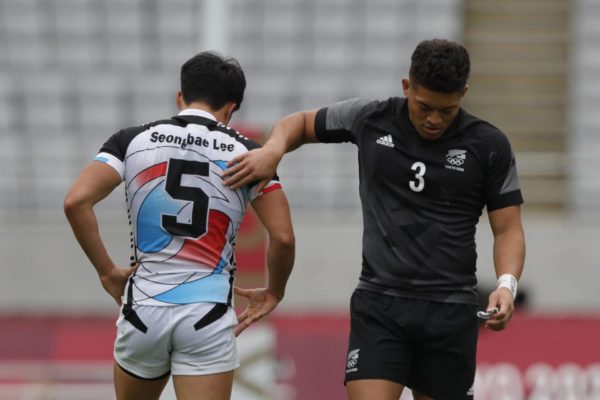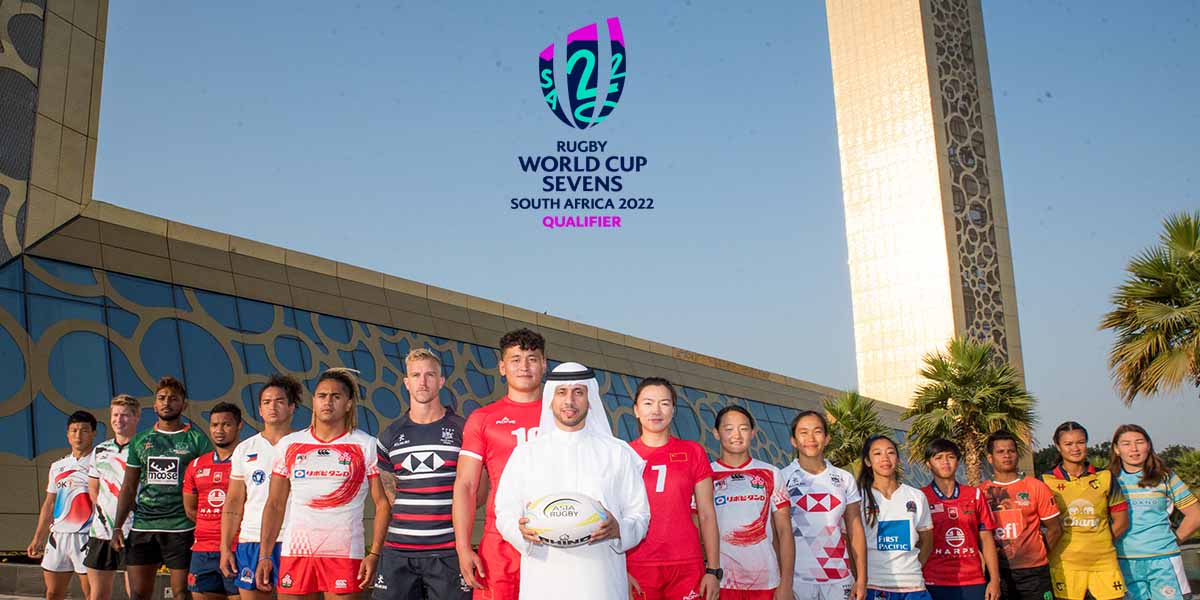The Dialog Asia Rugby Sevens Series 2021 returns after a two-year wait in Dubai this weekend with four places at Rugby World Cup Sevens 2022 available to the top two sides in both the men’s and women’s standalone tournaments.
Teams from across the region will be vying to be crowned Asian champions as well as confirming their place in the Cape Town extravaganza next year.
Men’s Fixtures and Results >>>>> Link
Champions of the recently concluded West Asia Rugby Sevens and hosts UAE have been drawn alongside seven-time Asia Rugby Sevens Series winners Japan together with Sri Lanka and China in Pool B of the men’s qualifiers. Pool A boasts of Asian powerhouses Korea, Hong Kong, the Philippines and Malaysia.
In the women’s qualifiers, Pool A will comprise Japan, Kazakhstan, Thailand and the Philippines, while Pool B features China, Hong Kong, Sri Lanka and Malaysia.
Women’s Fixtures and Results >>>>> Link
Each team will play a total of three matches in the round-robin format before entering the knock-out stage. The two teams that get to the final will confirm their place in Cape Town.
Japan are reigning Asian men’s and women’s champions and will be looking to bounce back from a disappointing showing at their home Olympics.
#RWC7s >>> Website
RESTORING PRIDE
Neither the men’s and women’s teams won a game and Sakura Sevens captain and Olympian Yume Hirano says her team are in a determined mood.
“We’ll go out to win the title as the Asian champions and win back the pride of the Sakura Sevens,” she said.
“We have players who played at the Olympics in the squad as well as the new members, but we will play as a unit to challenge our opponents who can be bigger in size and fleet of foot.
“Each one of us on the squad can show their abilities and put it all together for the benefit of the team.
“From my experience in Asia, it is important to play with a strong mentality and with attention to the small details in the Asian Series.”
CHANGING OF THE GUARD
Koichi Umeda, interim head coach for men’s sevens Japan, has warned his team to expect a tough challenge.
“When I look back at the records in Asia over the last three years from 2017 to 2019, Japan lost five times to Asian sides, namely Korea, China and Hong Kong.
“That indicates the rapid development of rugby in Asia. You see Hong Kong finished in the last eight at Edmonton and UAE beat Russia three out of four in their training matches recently. Japan is no longer in first place in Asia, and that’s something I have to tell the players as well.
“This is the first tournament for Japan to take part in after our disappointing showing at the Olympics. In our squad, we have so many players who are new to an international tournament and/or the sevens game, but I am hoping that we can show our fans a style of rugby that suits our players.
“This is a very young team but is developing to be a good team with a positive attitude and aggressiveness.”
QUALIFICATION WOULD BE “ABSOLUTELY EVERYTHING”
Like Japan, Korea failed to win any of their pool games at the Olympics, scoring just 10 and conceding 148 in the process.
But Korean rugby was still a winner, in the eyes of the public back home. Now coach Charlie Louw wants his team to keep the momentum going with qualification for RWC Sevens 2022.

“It would be absolutely everything, it is something we are aiming for, but we know it is going to be tough. There are a lot of good teams out there, you have got Japan, China, Hong Kong … and we have got them first up.
“Hong Kong is obviously looking to get revenge from us for the 2019 final for the Olympic qualifiers (when Korea won in sudden-death, extra-time). But we have prepared well, and anything can happen in sevens, that’s the beauty of the game, you have just got to be patient and disciplined and who knows what can happen.”
Olympians make up around 70 per cent of Korea’s squad and Louw hopes the current squad can continue to inspire the next generation.
“The Olympics is an unbelievable experience, I was blown away by the amazing athletes I saw, not just in rugby but in all sports, you’ve got the best of the best,” he said.
“From a rugby perspective, it elevated rugby’s status in Korea from just an arbitrary sport to a sport of interest. It has had unbelievable media coverage and following from people.
“Even though the results weren’t what people were hoping for, just the way the players played and the enthusiasm they had for the game sparked a fire for the younger generation. And those players, the 17/18-year-olds are now looking at the Olympics in Paris and in LA.
“I think in general the Olympics has been a huge boost for rugby in Korea and hopefully we can keep building on it.”



